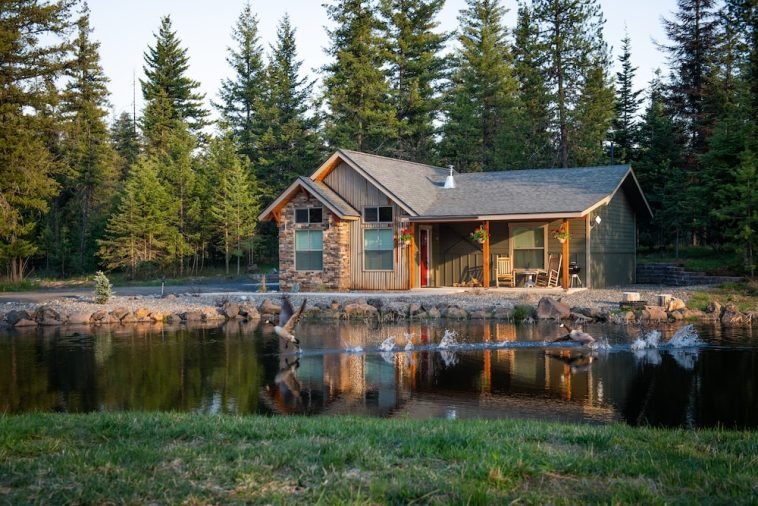Introduction.
Are you thinking about starting an Airbnb business in the U.S.? It’s a smart move, considering how popular short-term rentals have become.
With millions of people traveling each year, Airbnb is a platform that offers great opportunities for anyone looking to make money by renting out their property.
Whether you have a spare room, an empty vacation home, or a whole house, Airbnb can be a way to turn that extra space into a profitable business.
In this guide, I’m going to break down exactly how to start your Airbnb business, from setting up your listing to managing your guests.
You don’t need any special experience to get started, but there are a few key things you should know before diving in. I’ll cover the basics and help you get on your way to success.
Why Start an Airbnb Business?
Airbnb offers a flexible and relatively low-barrier way to generate extra income, and for some, it can even turn into a full-time business.
According to Airbnb’s own data, the number of hosts in the U.S. has grown steadily over the years, with hosts earning a combined $38 billion globally in 2022 alone. That’s no small amount!
With demand for short-term rentals continuing to rise, especially in popular tourist destinations, it’s an exciting time to get involved. Plus, people are more inclined to rent unique, homely spaces rather than stay in traditional hotels.
But starting an Airbnb business isn’t just about putting your space on the market and hoping for the best.
There’s strategy, preparation, and a little work involved. But don’t worry—I’ll walk you through the entire process step-by-step.
How Do I Start an Airbnb Business in The US?
Step 1: Understanding the Rules and Regulations
Before you start anything, it’s important to know the rules for short-term rentals in your area. Regulations vary greatly from city to city, so you’ll need to research the local laws and make sure your rental is compliant.
Some cities have restrictions on the number of days you can rent out a property, while others may require special permits or licenses. Violating these rules could result in fines or even losing the ability to rent out your property.
For example, in New York City, you can only rent out an apartment or home for short periods if you’re living in the property and present during the guest’s stay.
Meanwhile, in places like Los Angeles, the rules are less strict, but you still need to register your rental with the city if you’re renting for more than 30 days.
Once you’ve got the legal stuff sorted, it’s time to move forward with the next steps.
Step 2: Preparing Your Space.
This step is crucial! You want your property to stand out, so it’s important to make it as welcoming and comfortable as possible.
Cleanliness is key—no one wants to stay in a dirty place. You don’t need to make expensive upgrades, but adding some thoughtful touches can go a long way.
Here are some simple tips for prepping your space:
- Declutter and Clean: Make sure the space is tidy and free of any personal items that could make your guests feel uncomfortable. A deep clean is always a good idea before you start accepting guests.
- Basic Amenities: At the very least, make sure you offer clean linens, toiletries, a comfortable bed, and working appliances. These are the basics that guests expect.
- Add Some Personal Flair: Guests love staying in places that feel unique. Consider adding some local artwork, plants, or other decor that will make your listing pop.
- Take Great Photos: Good photos can make or break your listing. Make sure the lighting is good, and show the space from different angles. If you’re not great with photography, consider hiring a professional photographer for a small fee. Airbnb even offers professional photography services in some locations.
Step 3: Listing Your Property.
Now it’s time to create your listing. Setting up your Airbnb account is easy, but creating a great listing takes a little more thought.
You’ll need to write an attention-grabbing description and provide details about your space, like how many people it can accommodate, what amenities are included, and the type of space it is.
Here’s a basic checklist of what you’ll need to include:
- Title and Description: Write a catchy title and detailed description that highlight the best features of your space.
- Price: Research the going rate for similar rentals in your area and price your listing competitively. Don’t undervalue your space, but don’t overprice it either.
- House Rules: Set clear expectations about things like smoking, pets, parties, and check-in/check-out times.
- Availability: Set your calendar and decide on the minimum stay and cancellation policy. You can be flexible, but it’s important to set boundaries upfront.
Airbnb has a smart pricing tool that can automatically adjust your rates based on demand and local competition, but don’t forget to keep an eye on how your listing is performing and adjust accordingly.
Step 4: Managing Your Guests
Once your listing is live, you’ll start getting inquiries and booking requests. Responding quickly and being communicative with your guests is essential for building a good reputation.
People want to know that their host is reliable and easy to work with. Try to reply to messages within an hour (Airbnb gives you an “instant reply” badge if you’re quick), and always be friendly and accommodating.
During the guest’s stay, make sure you’re available in case of any issues but give them space to enjoy their time.
Airbnb also offers a messaging system, so you can communicate securely and privately without exchanging phone numbers.
Step 5: Offering a Great Guest Experience
A positive guest experience is key to getting good reviews. Guests are more likely to return if they feel welcomed and valued. Here are a few simple things you can do to make their stay memorable:
- Provide Local Recommendations: Create a guidebook or leave some personal recommendations for things to do in the area. Guests love getting insider tips!
- Personal Touches: Little things like leaving a welcome note or providing snacks or bottled water can make a big difference.
- Quick Response to Issues: If something goes wrong, address it immediately and professionally. Guests will appreciate your prompt attention.
Step 6: Growing Your Airbnb Business
As you get more experienced, you’ll want to optimize your business for growth. You might consider scaling by adding more properties or increasing your pricing during peak seasons. Pay attention to guest feedback and continuously look for ways to improve your offerings.
Investing in marketing can also help. Consider creating a website or social media pages for your rental business. The more exposure you get, the more bookings you’ll likely have.
FAQs
Do I need a real estate license to start an Airbnb business?
No, you don’t need a real estate license to rent your property on Airbnb, but you do need to follow local regulations. In some areas, you may need a business license, or you might need to register your property with the city.
How much can I make from an Airbnb business?
The amount you can earn depends on several factors, including your location, the size of your space, and how much you charge per night. On average, hosts in the U.S. make about $924 per month, but that number can be higher or lower depending on your specific circumstances.
Do I need to be at the property to host on Airbnb?
No, you don’t need to be at the property to host guests. You can hire a cleaning service, a property manager, or even use Airbnb’s co-host feature, where someone helps you manage the property.
How do I handle guest complaints or problems?
The best approach is to stay calm, listen to the issue, and respond quickly. Airbnb also has a resolution center to help mediate disputes. A good attitude and professional communication can help you avoid or resolve problems.
Conclusion
Starting an Airbnb business in the U.S. can be a fantastic way to earn extra income or even build a full-time business.
It takes some effort, but with the right approach, you can turn your space into a sought-after rental that people love.
By understanding the regulations, preparing your property, and providing excellent service to your guests, you’ll be on your way to success.
Ready to start your Airbnb business? What’s your first step going to be?





GIPHY App Key not set. Please check settings